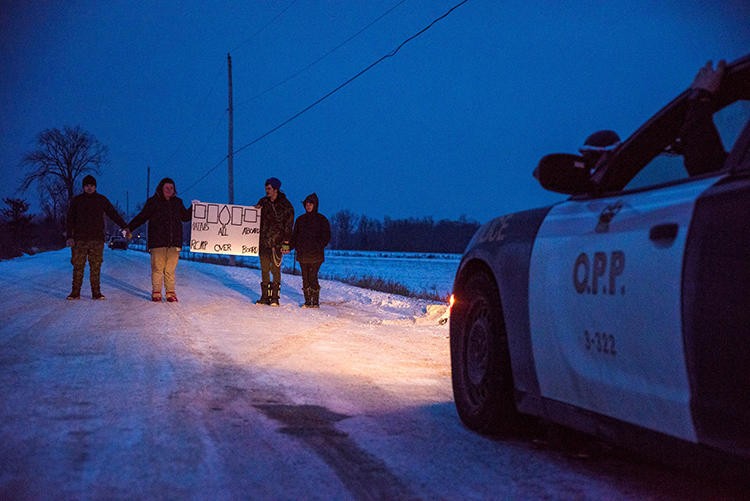On February 6, 2020, the Royal Canadian Mounted Police announced that they would begin physically removing protesters, many of whom are members of the indigenous Wet’suwet’en people, from encampments in British Columbia, where they have been demonstrating against the construction of a natural gas pipeline, according to media reports.
During the raids on February 6, police told two journalists, Jesse Winter and Bunker Film, to stop filming and photographing officers forcibly removing protesters, according to the journalists, who spoke with CPJ in phone interviews, and news reports. Winter, a freelance writer and photographer working for Vice News, told CPJ that police officers threatened to arrest him and Film, a documentary filmmaker with the Los Angeles-based production company Mutual Aid Media, who goes by a pseudonym.
When they refused to leave the area of the protest camps, officers placed Winter and Film in police vehicles, drove them away from the protests, and dropped them at a fast food restaurant, according to both journalists. They said they were not formally arrested or charged with any crime.
Near a separate camp in British Columbia, police stopped Jerome Turner, a reporter at local news website Ricochet, from driving to a protest site, and detained him for eight hours, according to Turner’s editor, Ethan Cox, who spoke to CPJ via messaging app, and news reports.
When CPJ called the Royal Canadian Mounted Police on February 6, Director of Communications Dawn Roberts said the force was looking into the journalists’ complaints and was not prepared to comment.
On February 7, Royal Canadian Mounted Police spokesperson Chris Manseau emailed Cox a statement saying that the police would “make every reasonable effort to allow media personnel to get as close as possible to the enforcement area, while ensuring no interference with police operations,” according to a copy of the correspondence Cox published on Twitter.
Cox told CPJ that the police had not created conditions that would allow journalists to freely move and get a full picture of the raids.
CPJ called the police several times for further comment but the press department did not return voicemails or respond to an email.
EDITOR’S NOTE: The details of Jerome Turner’s detention in the fourth paragraph have been corrected.
